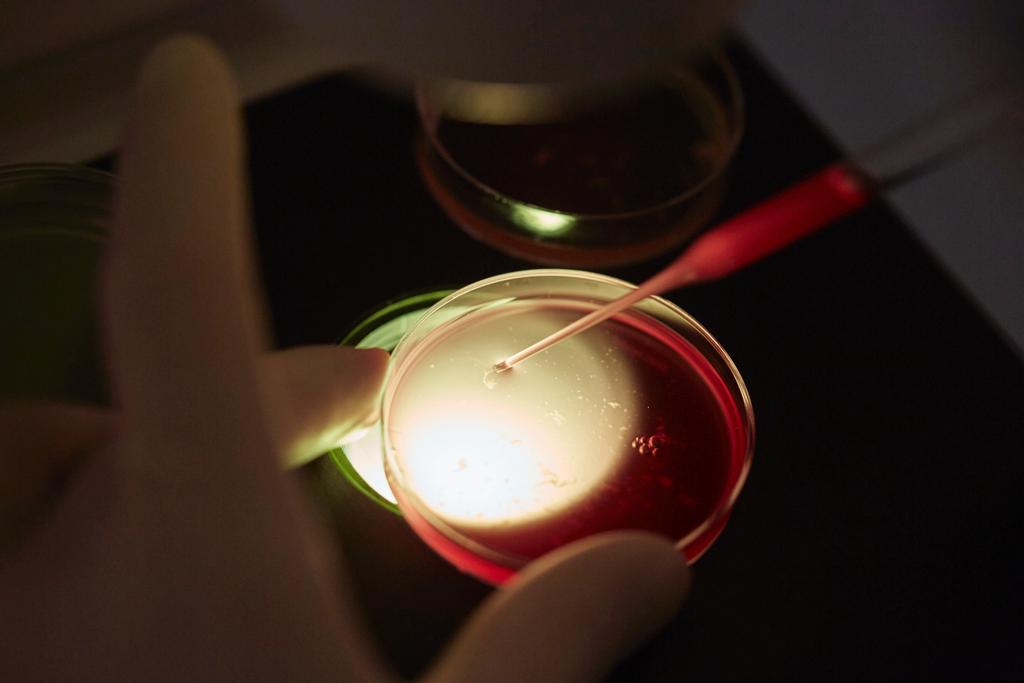
Pre-implantation diagnosis to be allowed

About 62% (61.9%) of Swiss voters have said yes to genetic screening of embryos before implantation in a woman’s uterus.
The change will allow embryos conceived with the help of in vitro fertilisation (IVF) to be tested for genetic defects and serious illnesses before they are implanted.
This screening, referred to as “pre-implantation genetic diagnosis” (PGD), will be available only for couples who have been unable to conceive naturally or for couples who are carriers of a gene which could lead to a serious genetic defect.
With the change, embryos could also be frozen and stored for future use.
Interior Minister Alain Berset welcomed the result, saying it showed that one can have a public debate on “extremely complex issues”. Berset reiterated arguments by proponents of PGD that the constitutional article forbids people from going too far to create “designer babies”.
Reaction
Parliamentarian Ruth Humbel of the centrist Christian Democrats, said the results are a clear sign that people want access to advanced medicine.
Suzanne Auer of AGILE, an organisation supporting people with disabilities, on the other hand said she was disappointed by the results of Sunday’s nationwide vote, but not surprised. “The problem is, it’s a highly complex issue and difficult to form an opinion,” she said. Purely technical arguments of the supporters were pitted against ethical arguments of the opponents.
Referendum?
The constitutional amendment could however be overturned by a referendum.
The small centrist Protestant Party had said it may decide to collect signatures to force another ballot on the issue.
Parliamentarian Thomas Weibel of Zurich said the pro committee members were “surprised, but also pleased” by the relatively clear yes in favour. “If the results were closer, it would be clear that they would be contested in a referendum, but now the opponents will have to reconsider,” he said.
But Parliamentarian Susanne Leutenegger Oberholzer of the leftwing Social Democrats assured Swiss public television, SRF, that the referendum would come to pass. “There will be a whole different debate,” she said. “The law goes much too far.”
What’s currently allowed
Currently, genetic screening is allowed in Switzerland, but only using cells removed from a woman’s body after a pregnancy has begun. It generally takes place between 9 and 12 weeks after conception, when the embryo has become a foetus, and is available irrespective of whether a baby was conceived naturally or with IVF. If a genetic defect is discovered during this screening, abortion is an option in pregnancies of up to 12 weeks.
Current law allows the creation in vitro of only the number of embryos “that can be immediately implanted”, which in practice is three. At present, all IVF embryos must be implanted at the time they are created, meaning that multiple pregnancies (e.g., twins) – which are associated with higher risks – are more likely.
For and against
Running up to the election, the constitutional amendment was backed by a clear majority in parliament and by Switzerland’s main doctor’s association. However, organisations for the disabled were divided, and the main political parties were split on the issue.
Supporters say Switzerland’s current reproductive medicine laws push couples to go to other countries where the procedures are legal, and cause unnecessary abortions. Most European countries allow PGD.
Opponents have warned against legalising the pre-implantation screening of test-tube embryos for ethical reasons, saying it could cause discrimination against families who decide to continue with a pregnancy in face of results that show the child will have a disease or handicap.
The change could also lead to the creation of “designer babies”, they say, because the testing can give information about traits such as gender and eye colour.
The text of the amendment expressly forbids using the test to determine such characteristics, however. And in its discussions, parliament declined to authorise the creation of embryos to harvest stem cells for the sole purpose of providing medical treatment to a sibling.
Four separate issues featured on Sunday’s ballot sheet:
A proposal, supported by the centre-left, to introduce a nationwide inheritance tax, was rejected.
A constitutional amendment to allow the genetic screening of IVF embryos was accepted.
An initiative to harmonise student grants across the country was turned down.
A referendum against a parliamentary decision to reform the funding of public radio and television was accepted.

In compliance with the JTI standards
More: SWI swissinfo.ch certified by the Journalism Trust Initiative


























You can find an overview of ongoing debates with our journalists here . Please join us!
If you want to start a conversation about a topic raised in this article or want to report factual errors, email us at english@swissinfo.ch.